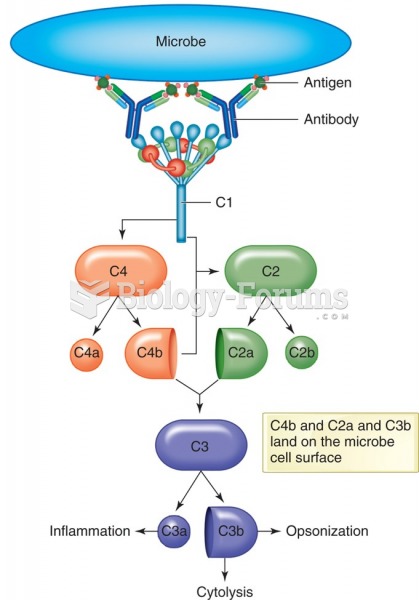|
|
|
Hip fractures are the most serious consequences of osteoporosis. The incidence of hip fractures increases with each decade among patients in their 60s to patients in their 90s for both women and men of all populations. Men and women older than 80 years of age show the highest incidence of hip fractures.
Approximately 500,000 babies are born each year in the United States to teenage mothers.
When blood is exposed to air, it clots. Heparin allows the blood to come in direct contact with air without clotting.
The familiar sounds of your heart are made by the heart's valves as they open and close.
Symptoms of kidney problems include a loss of appetite, back pain (which may be sudden and intense), chills, abdominal pain, fluid retention, nausea, the urge to urinate, vomiting, and fever.







